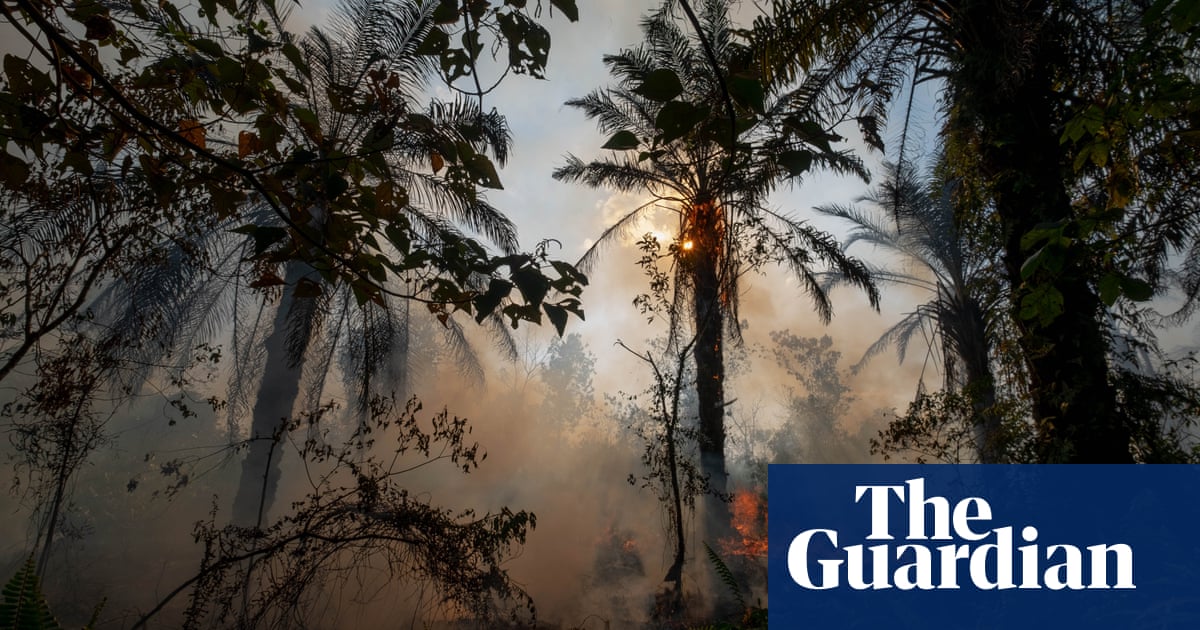
Three of the biggest US grocery chains sell Brazilian beef produced by a controversial meat company linked to the destruction of the Amazon rainforest, an investigation has revealed.
Food giants Walmart, Costco and Kroger – which together totalled net sales worth more than half a trillion dollars last year – are selling Brazilian beef products imported from JBS, the world’s largest meat company, which has been linked to deforestation.
Brazilian beef has been identified as a key driver of deforestation in the Amazon, where swathes of forest are cleared for pasture used for cattle farming. The Amazon is a crucial buffer in stabilising the regional and global climate. Experts say preserving the world’s rainforests is essential if further intensification of the climate emergency is to be averted.
Research by the Guardian, the Bureau of Investigative Journalism and the nonprofit data analysis agency C4ADS established that in recent years, the JBS subsidiary Sampco Inc has imported thousands of tonnes of Brazilian beef, destined for grocery chains and other food companies, into the US.
The products include shredded and canned (corned) beef, as well as frozen meat and steaks. In December, Sampco-branded shredded beef, produced in a JBS factory in São Paulo, was being sold online by both Walmart and Costco, and shipping data pinpoints JBS exports of Brazilian corned beef being supplied for sale in Kroger stores.
Between July 2017 and November 2019, Sampco imported more than 5,000 consignments of Brazilian beef products totalling 7,884 tonnes, records obtained by C4ADS show.
Responding to these findings, campaigners called on the grocery chains to take swift action to rid supply chains of deforestation-linked products.
“Supermarkets need to go beyond their sustainability rhetoric by setting strict requirements for their suppliers, banning deforestation, monitoring their suppliers for compliance, and dropping contracts with the worst offenders like JBS,” said Lucia von Reusner, senior campaign director of international campaign organisation Mighty Earth.
Costco declined to answer questions but pointed to its sustainability policies, which state: “Our intent is not to source beef from high-risk deforestation regions until comprehensive traceability and monitoring systems are in place.”
A Walmart spokesperson said: “Walmart takes these allegations seriously and will review the claims made. We believe healthy forests sustain biodiversity, support livelihoods and play an important role in mitigating climate change. Walmart is working with suppliers on certification, monitoring, supporting sustainable sourcing regions, promoting collaborative action and advocating for effective policy.”
A spokesperson for Kroger said: “We take deforestation seriously, as demonstrated by our no-deforestation commitment, and continue to engage our suppliers in pursuit of this commitment and to ensure no deforestation is happening in our relevant supply chains.”
JBS beef exports have been linked to farms involved in up to 115 sq miles (300 sq km) of deforestation a year. The company slaughters almost 35,000 cattle a day in Brazil.
A JBS spokesperson said: “The spurious allegation that JBS exports are linked to deforestation is irresponsible and based on flawed, superficial analysis of the correlation between the concentration of deforestation at municipality level and the location of our plants. Correlation is not causation.”
Campaigners said the latest revelations highlighted the urgent need for US laws that combat deforestation. To date there has not been any significant proposal in the US for federal legislation outlawing agricultural imports linked to tropical deforestation, unlike in Britain and the EU, where momentum for new rules has recently gathered pace.
“The US is complicit in driving global deforestation through its sales of beef products from Brazil,” said Sarah Lake, Mighty Earth’s vice-president and director for Latin America. “The Biden administration has an opportunity to advance legislation to restrict the import of products linked to deforestation, just as the EU, the UK and France are already doing.”
Brian Schatz, Democratic senator for Hawaii, said before the Covid pandemic that he planned to introduce such legislation. And last week, a bill was introduced to the California state assembly that would require contractors supplying products to the state to ensure they are not linked to deforestation overseas.












